Envelope - Thermal Enclosure:
Source: High Performance Buildings Database
A highly efficient building envelope reduces thermal transfer. The use of structural insulated panels in place of frame construction greatly increased the insulation value of the walls. Overall, insulation values for almost every part of the building envelope are at least twice the values required by state code. For cold climate buildings this is emerging as a starting point for building envelope design standards. It does pose some challenges in the detailing of the envelope - but which can be accomodated.
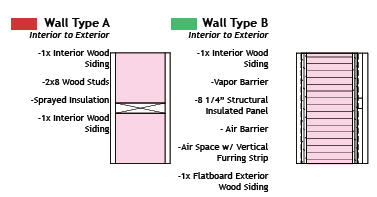
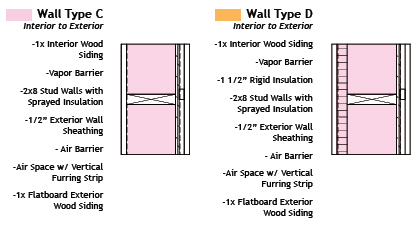
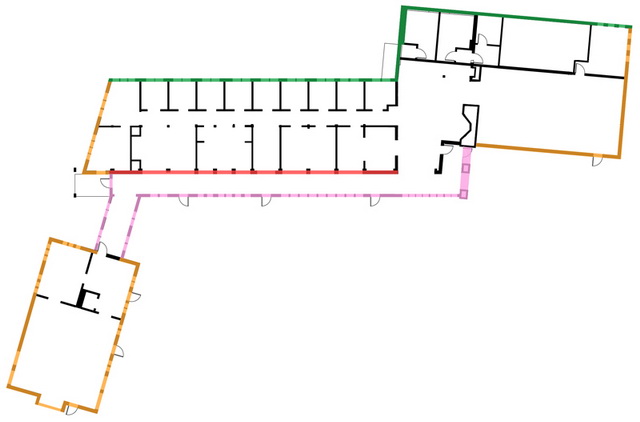
Diagram Showing the Location of the Various Exterior Wall Types
Building Section - Thermal Enclosure:

Cross Section of the Aldo Leopold Center showing the
Super Insulated Envelope and Window Detailing
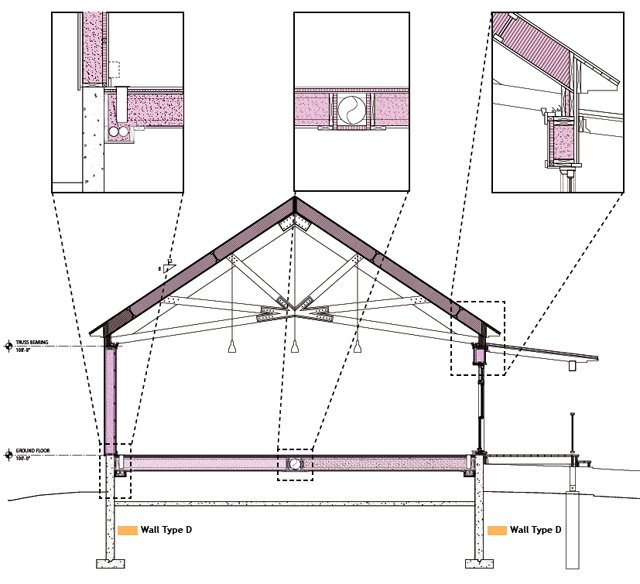
Cross Section of the Aldo Leopold Center showing the
Integration of the Heating System
Building Envelope - Aperture Distribution:
Building Glazing Ratios per GSF
South 4.3%
East 2.2%
North 3.9%
West 2.2%
Sloped 0.0%
Horizontal 0.0%
TOTAL 12.6%
Operable Window Area per conditioned s.f. 16.1%
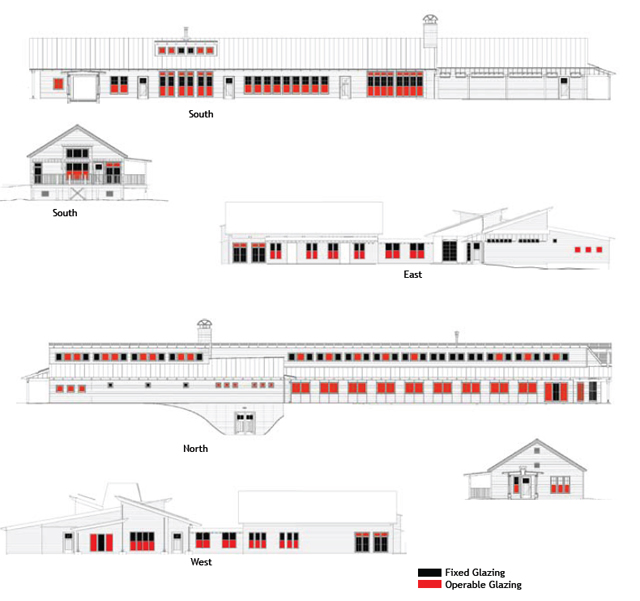
Aperture Distribution
Envelope - Controlling Aperture Solar Gains: SOUTH ELEVATION
SOUTH GLAZING
Staff Lunchroom Clerestory and Window Wall Solar Radiation
With passive design, and CND strategies for load reduction, it is extremely important to prevent solar gain into the interior of the building in the cooling months. The windows that allow for passive solar gain in the heating months must be blocked from the exterior to minimize cooling requirements in the summer season. The diagram below shows the way that they roof overhangs have been designed to produce shading during the hot summer months, while at the same time allowing deep solar penetration in the winter. This simple natural extension of the roof also assisted in simplifying the design and saving money that might have otherwise been required if specialized shading devices had been required.
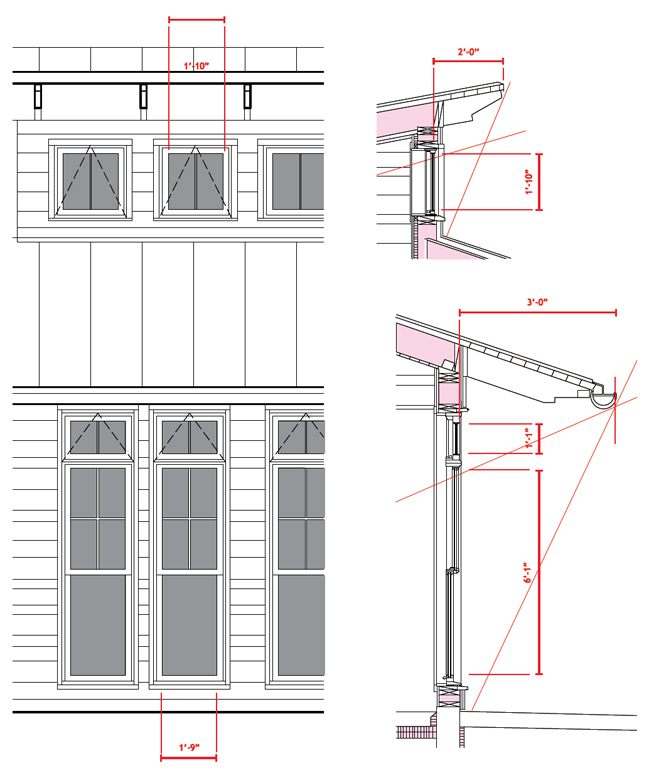
Basic Shading Strategies for the Two Primary Window Types on the South Elevation
Controlling Solar Gain - Transmission Study


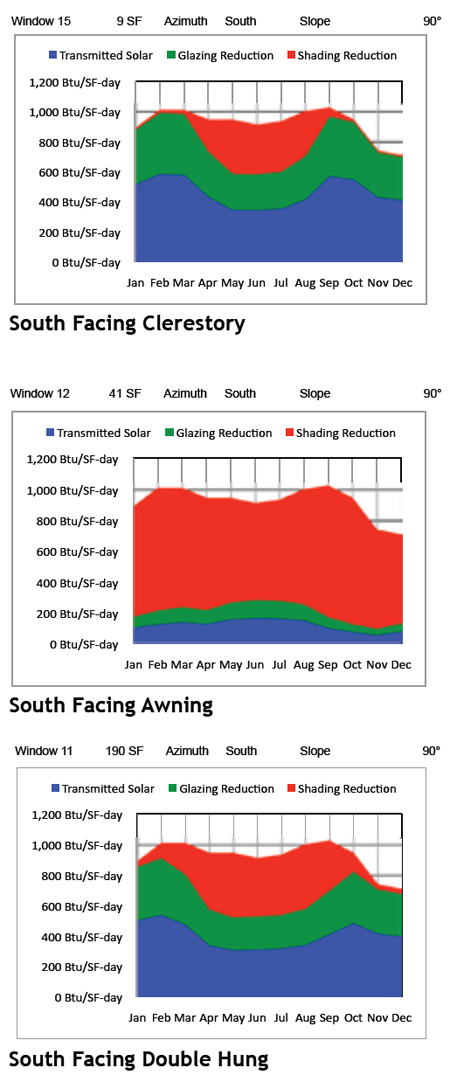
Transmission Data for South Facing Windows
Envelope - Controlling Aperture Solar Gains: NORTH ELEVATION
NORTH GLAZING
Clerestory and Office Windows
Although potentially less of an issue in terms of solar control than south facing windows, north facing windows have their own special concerns in Carbon Neutral Design. In the case of the Leopold Center, the windows are being used for daylighting, in order to reduce the electric lighting load during the daytime hours, as well as to promote natural ventilation. From a thermal perspective, windows are significantly less efficient than the super insulated walls that they puncture. So a balance needs to be struck between keeping them large enough to daylight and ventilate the building, but small enough so that they do not result in large winter and nighttime heat losses.
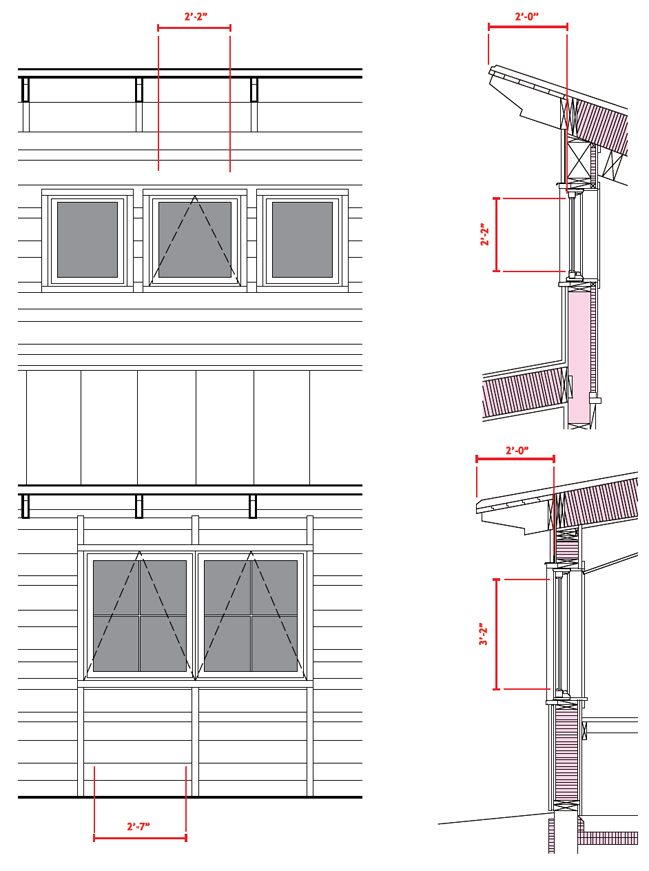
Basic Strategies for the Two Primary Window Types on the North Elevation
Controlling Solar Gain - Transmission Study
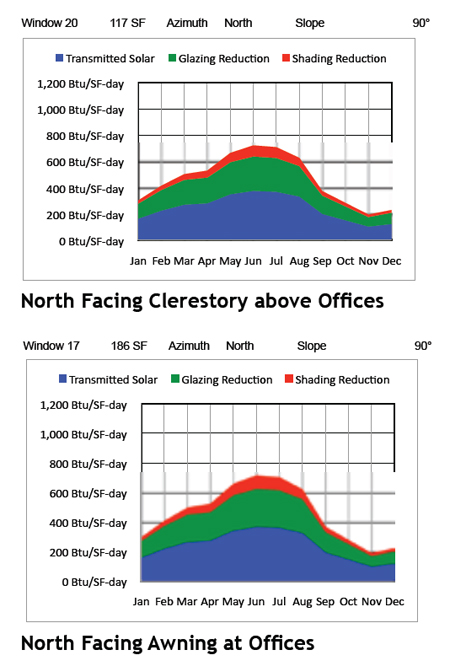

|

